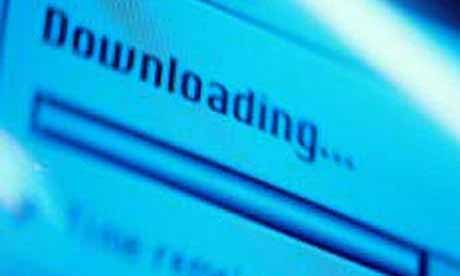Plans to force internet service providers (ISPs) to disconnect suspected illegal downloaders have been roundly rejected in a new YouGov poll, the first time public opinion has been tested on the issue.
YouGov poll, the first time public opinion has been tested on the issue.
Nearly 70% of those surveyed said someone suspected of illegal downloading should have a right to a trial in court before restrictions on internet use were imposed. Only 16% were in favour of automatic curbs based on accusations by copyright holders such as musicians, as is proposed by the business department.
ISPs such as TalkTalk and T-Mobile complain that the government's proposals expect them to bear the costs of protecting a third party's rights. They warn that the move will not work because illegal filesharers can avoid detection by encrypting the traffic, or by hijacking someone else's IP address or using their Wi-Fi network.
Ministers have insisted that disconnection is a last option and something on which they are consulting. They are, however, facing a growing backlash, with an all-party motion urging a rethink of the policy on disconnection being led by Tom Watson, the former cabinet office minister responsible for digital inclusion.
Jim Killock, executive director of the Open Rights Group, the organisation that commissioned the YouGov poll, called the government's plans extremist.
"This poll shows people rely on the internet, and an overwhelming majority think that access should only ever be withdrawn as the result of court action.
"Nearly a third would be much less likely to vote for a party that supports disconnection proposals.
"Clearly Lord Mandelson, the business secretary, is out of step with public opinion and should think again."
The poll also found that among younger voters, the threat of internet disconnection for online copyright infringement might be a vote-changing issue.
Meanwhile the Conservative shadow culture secretary told the Financial Times a Tory government would scrap the proposed 50p a month tax on all telephone lines, aimed at raising £150m to £175m a year to support rural broadband projects. Jeremy Hunt said it would be scrapped a "soon as possible" after the general election expected in May. He said the party was also considering reversing government plans to force the BBC to share £130m of the television licence fee with other broadcasters.


0 comments:
Post a Comment
Note: Only a member of this blog may post a comment.